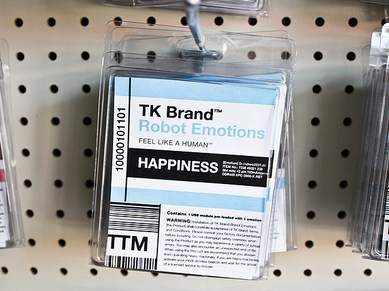Believe It Or Not, People Want More Oversight Of Implanted Medical Devices
It seems almost silly to think that anyone would want to scale back the amount of regulatory control on the safety of medical devices, and a new poll shows that an overwhelming number of Americans believe in strong oversight of these products. Yet members of the House and Senate are considering legislation that could allow potentially unsafe items to hit the market.
Congress is currently going through the process of reauthorizing the statute governing the approval of medical devices. The laws on the books allow the FDA to approve a new medical device if it is similar to an existing, previously approved device, even if that older device has been recalled because of safety problems. This means that fewer than 1% of new devices go through the FDA’s strenuous Pre-Market Approval process.
And the draft legislation put together by the House Energy and Commerce Health Subcommittee would actually allow the approval process to go even faster. The Senate Health, Education, Labor and Pensions Committee’s draft bill does provide some additional protections for patients once devices are on the market, but does nothing new to prevent potentially unsafe medical devices from being sold in the first place.
But according to a new poll by our publishing pals Consumer Reports, 82% of Americans believe that preventing safety problems is more important than limiting safety testing in order to prevent delays and encourage innovation.
91% of poll respondents said each implant should be safety tested before being sold even when similar implants were in use.
71% said that a new device should not be allowed to be sold based on its similarity to an existing implant that has a safety problem or has been recalled.
94% indicated that medical device makers should be required to do long-term monitoring of implants if there are safety concerns or problems with a particular device. Existing law gives the FDA only limited authority to require such long-term safety monitoring.
95% said that effective consumer protections for medical implants should include a nationwide system for tracking medical implants so patients can be notified about safety problems or recalls. No such system currently exists in the U.S. even though it was required by Congress’ previous reauthorization of the law.
66% indicated a high level of concern about safety decisions or recommendations made by expert committees that included doctors who had current financial relationships with medical device makers.
Industry lobbyists have been pushing lawmakers to weaken current rules designed to prevent such conflicts of interest. The Senate and House discussion drafts remove current caps on the percentage of expert committee members that can be granted waivers if they have a conflict of interest, a provision championed by consumer advocates five years ago.
“Recent problems with metal hip implants and surgical mesh have shown how our current system fails to ensure medical devices are safe and effective,” said Lisa Swirsky, senior policy analyst for Consumers Union. “Unfortunately, the House bill weakens current standards to speed up device approvals rather than improving safety oversight. The Senate bill offers some improvements but it should be strengthened to require stricter safety testing of new implants and life sustaining devices. Congress should recognize that the public is far more concerned about making sure devices are safe and work than how quickly they are made available.”
“Our poll shows that Americans support common sense reforms that would help improve medical device oversight and keep patients safe,” said Lisa McGiffert, director of Consumers Union’s Safe Patient Project. “The vast majority of the public wants strict requirements that ensure new implants are safe and effective.”
Consumers Union’s Safe Patient Project has called on Congress to require more rigorous safety testing before medical implants and life sustaining devices are allowed on the market and to establish a better system for monitoring devices after approval, including a national system for notifying doctors and patients when safety problems arise.
For more details, see the Safe Patient Project’s Improve the Safety of Medical Devices fact sheet.
Want more consumer news? Visit our parent organization, Consumer Reports, for the latest on scams, recalls, and other consumer issues.


